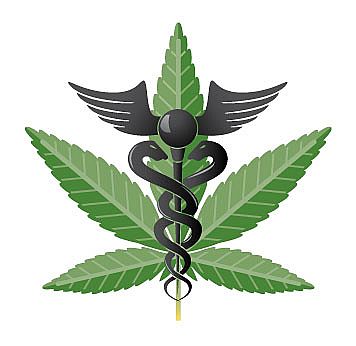Those are seven scary words: "for whom all other options have failed..." but those were the requirements for the Occipital Nerve Stimulator study. I've learned that study is a golden standard among pain doctors.
"Have you tried everything?"
Yes, I've tried everything.
"Have you really tried everything?"
I was in the Occipital Nerve Stimulator Study.
"Oh, crap. You really have tried everything. Sorry, there hasn't been anything new since Lyrica in 2008."*
That's where I am in pain management. Out beyond the horizon in "we have no idea what the eff to do" land, looking at blank faces that read "our hands are tied on what we could do by insane government regulation, I have a family to feed..."
I'll overlook the fact the DEA is practicing medicine without a license if they would just let me talk to someone face-to-face.
I know a woman with Stage IV stomach cancer who can't get pain medication because of DEA regulation! ARE YOU KIDDING ME?? All because of a little clause that says if you use marijuana, even medicinally (hello? STOMACH cancer???), you are excluded from ALL narcotics programs. Period.
Um... Mr. Jeff Sessions, may I have a word?
Forget me and my pain, Stage IV stomach cancer and you're forcing her to die in agony. What the in the ethical hell has this country become?? This is Cruel & Unusual Punishment by fiat. We HAVE the drugs. They're completely AFFORDABLE. The SOLUTION is right there!!! But because of some moral panic over addiction, we're going to make this innocent, beautiful soul walk that path of pain...
Her life doesn't have to be Hell. Mr. Sessions, how as a Christian can you allow that? Have you no mercy???
God in Heaven, hear us.
(* As of writing this, that's ten years ago. That's how slow drug development is.)
"Have you tried everything?"
Yes, I've tried everything.
"Have you really tried everything?"
I was in the Occipital Nerve Stimulator Study.
"Oh, crap. You really have tried everything. Sorry, there hasn't been anything new since Lyrica in 2008."*
That's where I am in pain management. Out beyond the horizon in "we have no idea what the eff to do" land, looking at blank faces that read "our hands are tied on what we could do by insane government regulation, I have a family to feed..."
I'll overlook the fact the DEA is practicing medicine without a license if they would just let me talk to someone face-to-face.
I know a woman with Stage IV stomach cancer who can't get pain medication because of DEA regulation! ARE YOU KIDDING ME?? All because of a little clause that says if you use marijuana, even medicinally (hello? STOMACH cancer???), you are excluded from ALL narcotics programs. Period.
Um... Mr. Jeff Sessions, may I have a word?
Forget me and my pain, Stage IV stomach cancer and you're forcing her to die in agony. What the in the ethical hell has this country become?? This is Cruel & Unusual Punishment by fiat. We HAVE the drugs. They're completely AFFORDABLE. The SOLUTION is right there!!! But because of some moral panic over addiction, we're going to make this innocent, beautiful soul walk that path of pain...
Her life doesn't have to be Hell. Mr. Sessions, how as a Christian can you allow that? Have you no mercy???
God in Heaven, hear us.
(* As of writing this, that's ten years ago. That's how slow drug development is.)












